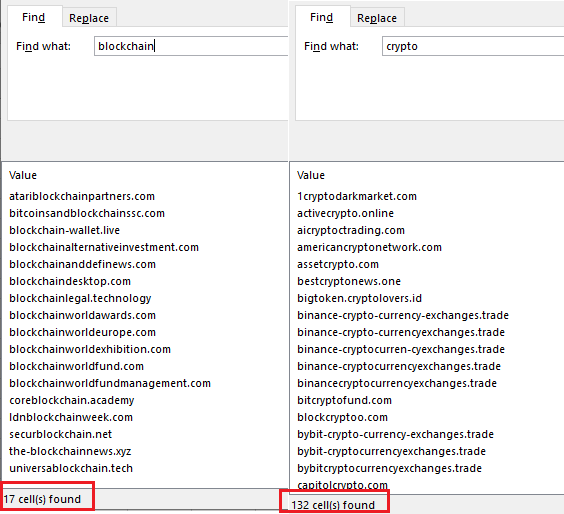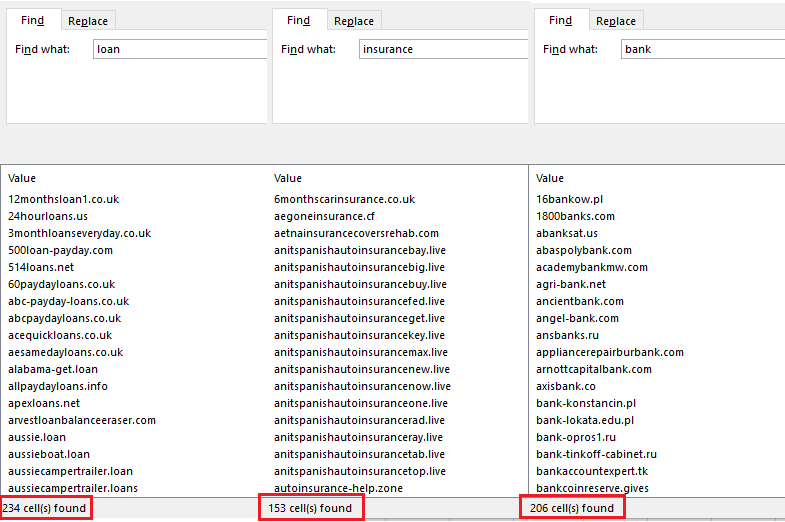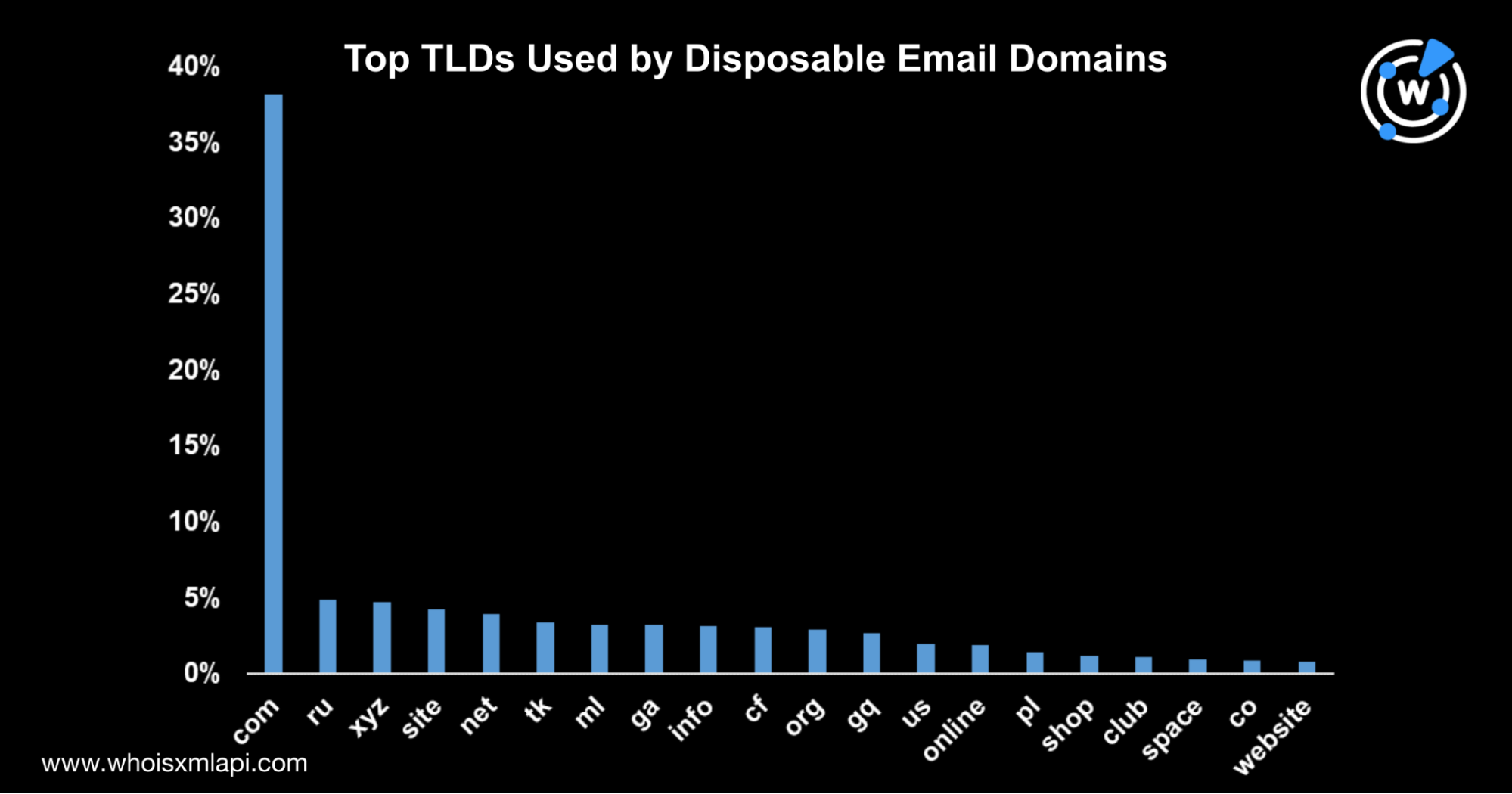


|
||
|
||
This post was updated on Nov 23, 2023.
The use of disposable email addresses is quite widespread and for different reasons. We briefly explored some of them in this post and performed a short security analysis on a massive list of disposable email domains.
But first, it’s essential to acknowledge that various types of disposable or temporary email addresses exist. These include:
The idea behind creating disposable email addresses is probably well-intentioned from the standpoint of privacy. However, throwaway email addresses may be misused for spamming and abusive and possibly even malicious purposes. We tackled both uses of disposable emails below.
Legitimate uses of disposable email addresses include the following:
Privacy Protection: Some people use throwaway or temporary email addresses to help protect their privacy and remain anonymous online. Users with this use case in mind are typically concerned with the ongoing global privacy issues that the Internet often creates.
Avoid Marketing Emails: Disposable email addresses can also help people avoid getting too many marketing emails. In hindsight, the use of temporary email addresses may also hint at the lack of trust users often have in companies, as they don’t want to expose their official email addresses to security breaches or spam-like marketing messages.
Test Email Workflows: Throwaway email addresses may be helpful for professional purposes, too. Software engineers and testers, for instance, often use disposable email addresses to test the email workflows of their products.
Some people may also employ disposable email addresses for more questionable endeavors, hence the relevance of possibly monitoring disposable email domains.
For example, an individual can sign up for a free trial using a throwaway email address. When the period ends, he or she would again sign up for another round using another temporary email address. What are the repercussions of this behavior? Here are a few.
Monitoring disposable email domains can help organizations keep spammy or dangerous emails away and also strengthen email security solutions. At the same time, a list of disposable email domains can help keep businesses afloat by increasing their chances of sales conversion.
We analyzed one fake email domain list containing tens of thousands of disposable email domains as of 16 November 2023.
The list of disposable email domains we obtained contains a wide range of domain names, but four categories stood out.
First on the list are random-looking and what could be machine-generated email domains. It is possible that these were created using a domain generation algorithm (DGA), a common method that allows malware families to communicate with their command-and-control (C&C) servers while evading detection. Some disposable email domains are random strings of numeric characters, such as:
Some make use of random-looking character sequences, including:
Some of the examples above have already been reported for spamming and malware activities.
We also noticed some online entities on the list of disposable email domains that mimic popular brands. These domains could have been created hoping users mistyped the brands’ official domains. They could also be used to mislead users into opening a phishing or scam email.
Some disposable email domains on the list seem like PayPal copycats, such as enpaypal[.]com, paypal[.]comx[.]cf, paypalserviceirc[.]com, and via-paypal[.]com. The typosquatting domain enpaypal[.]com has already been reported as malicious.
Other typosquatting domains target popular brands. Some examples are shown in the table below.
| Gucci Look-Alike Domains | Louis Vuitton Look-Alike Domains |
|---|---|
| • borsegucc1outletitaly[.]com • borsegucciitalia3[.]com • borseguccimoda[.]com • borseguccioutletit[.]biz • borsegucciufficialeitt[.]com | • bagslouisvuitton2012[.]com • bollouisvuittont[.]info • borseelouisvuittonsitoufficiale[.]com • cheaplouisvuitton-handbags[.]info • cheaplouisvuittonaubags[.]com |
| Microsoft Look-Alike Domains | Rolex Look-Alike Domains |
| • dailymicrosoft[.]com • genuinemicrosoftkeyclub[.]com • login[.]microsoft-office[.]live • microshoftoffice[.]xyz • microsofl[.]website | • rolex19bet[.]com • rolexbahis[.]com • rolexdaily[.]com • rolexok[.]com • rolexpoker88[.]asia |
We also noticed several internationalized domain names (IDNs) that seemed to imitate brands. Below are some examples of Gmail-targeted IDN-using typosquatting domains with their Unicode and Punycode versions.
| Unicode | Punycode |
|---|---|
| gmaıl[.]com | xn—gmal-nza[.]com |
| gmaiö[.]com | xn—gmai-8qa[.]com |
| gmaıl[.]net | xn—gmal-nza[.]net |
| gmaìl[.]com | xn—gmal-spa[.]com |
Notice that instead of the lowercase “i,” a vertical bar is used in the first example, so it still looks like the mimicked domain name.
About a dozen disposable email domains also mimicked avito[.]ru. Based on WHOIS lookup results, none of these belonged to Avito Holding AB, the registrant organization indicated in the WHOIS record of avito[.]ru:
Avito is Russia’s largest classified ad website and the second-largest globally, next to Craigslist. Anyone who lands on an imitation website could become a victim of data theft, ransomware attack, or other cybercrime.
The list of disposable email domains detected more than 100 email domains related to blockchain and cryptocurrency. Below is a screenshot of some disposable email domains containing the strings “blockchain” and “crypto.”

A few of these domains have already been flagged as malicious, including crypto-net[.]club, cryptonet[.]top, and cryptontrade[.]ga.
Hundreds of finance-related domains were also found on the list of disposable email domains. We used the strings “loan,” “insurance,” and “bank.” These email domains could be used in scams and cyber attacks targeting financial institutions. In fact, chipbankasi[.]com has already figured in spamming activities.

Several studies have established that people tend to trust URLs and domains with the .com generic top-level domain (gTLD) extension. In terms of usage in disposable email domains, .com also took the lead, accounting for about 38% of the total number of disposable email domains on our list. The remaining email domains are distributed among hundreds of other TLDs.
The chart below shows the top 20 TLDs used in the list of disposable email domains. Of the 20 TLDs, eight were country-code TLDs (ccTLDs), namely, .ru, .tk, .ml, .ga, .cf, .gq, .pl, and .co.

Knowing that shady individuals often use disposable email addresses, people should not trust email addresses based on TLD usage alone.
This in-depth analysis of a list of disposable email domains highlight the need to protect networks from disposable email addresses. The presence of typosquatting, finance-related, suspicious, and malicious email domains in our list of disposable email domains supports this.
While there are legitimate uses of disposable emails, some may serve as entry points for attackers to carry out malware infections, financial scams, data theft, and other forms of cybercrime.
Sponsored byCSC

Sponsored byIPv4.Global

Sponsored byVerisign

Sponsored byDNIB.com

Sponsored byRadix

Sponsored byVerisign

Sponsored byWhoisXML API
